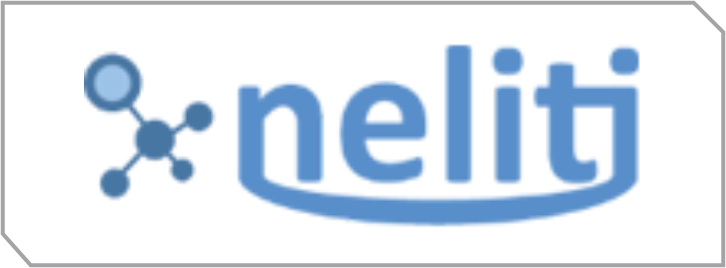Crowdfunding Platform Analysis: A Perspective from Digital Marketing (A Case of Selfless School, Jakarta)
DOI:
https://doi.org/10.53748/jbms.v2i4.52Keywords:
crowdfunding market, education field, social problem, business entrepreneurship, consumer demand, market competitionAbstract
This study aims to cover the business process area of Selfless School to analyze the problems of the difficulty to enter an existing market with strong competition. For this reason, this study provides several solutions in the form of frameworks and analysis that can be used by Selfless School. There will be several sections which are methods of data collection and marketing analysis: secondary data regarding the amount of investment, cash flow projection, and also the start-up projection in the range of 5 years. Being a new established start-up in a competitive market, Selfless School needs to appeal to a unique image and create different value from other competitors. This study provides analysis from the beginning and the current progress that cause slow profitability by using several marketing analysis methods such as blue ocean strategy, lean start-up strategy and business level strategy.
Downloads
References
Carbon, C-C. (2014). Understanding Human Perception by Human-made Illusions. Frontiers in Human Neuroscience, 8, 566.
Bortolini, R. F., Cortimiglia, M. N., Danilevicz, A. d. M. F., & Ghezzi, A. (2018). Lean Startup: A Comprehensive Historical Review. Management Decision, 59(8), 1765-1783.
Kim, C., & Mauborgne, R. (2004). Three Tiers of Noncustomers. Blue Ocean Strategy. Retrieved from https://www.blueoceanstrategy.com/tools/three-tiers-of-noncustomers/
Manshor, Z., Abdullah, S., & Hamed, A. B. (2020). Poverty and the Social Problems. International Journal of Academic Research in Business and Social Sciences, 10(3), 614–617.
Manstead, A. S. R. (2018). The psychology of social class: How socioeconomic status impacts thought, feelings, and behaviour. The British Journal of Social Psychology, 57(2), 267-291.
Mollick, E. (2014). The dynamics of crowdfunding: An exploratory study. Journal of Business Venturing, 29(1), 1-16.
Moon, Y., & Hwang, J. (2018). Crowdfunding as an Alternative Means for Funding Sustainable Appropriate Technology: Acceptance Determinants of Backers. Sustainability, 10(5), 1456.
Pangaribuan, C. H., & Wulandari, Y. S. (2019). A crowdfunding platform user acceptance: An empirical examination of performance expectancy, effort expectancy, social factors, facilitating condition, attitude, and behavioral intention. Proceedings of the 1st Sampoerna UniversityAFBE International Conference, SU-AFBE 2018, 6-7 December 2018, Jakarta, Indonesia.
Permatasari, A. F., Ulum, I., & Arisanti, I. (2022). Successful Crowdfunding in Indonesia Based on Financial Projection and Investor Attraction: Empirical Study on Micro, Small and Medium Enterprises (MSMEs) on the Bizhare Platform. Journal of Accounting and Investment, 23(2), 196-208.
Ruiz-Fernandez, M. D., Ortiz-Amo, R., Andina-Diaz, E., Fernandez-Medina, I. M., Hernandez-Padilla, J. M., Fernandez-Sola, C., & Ortega-Galan, A. M. (2021). Emotions, Feelings, and Experiences of Social Workers While Attending to Vulnerable Groups: A Qualitative Approach. Healthcare, 9(1), 87.
Smith, R., Chen, J., & Yang, X. (2008). The Impact of Advertising Creativity on the Hierarchy of Effects. Journal of Advertising, 37(4), 47-61.
Sukasni, A., & Efendy, H. (2017). The Problematic of Education System in Indonesia and Reform Agenda. International Journal of Education, 9(3), 183-199.
Turban, E., Outland, J., King, D., Lee, J., Liang, T-P. & Turban, D. (2018). Electronic Commerce 2018: A Managerial and Social Networks Perspective. Springer.
Wiscicka-Fernando, M. (2020). Crowdfunding as an Internet Tool Used for Establishing Relationships with the Customer – A Concept Paper. Problemy Zarzadzania (Management Issues), 19(1), 165-176.
Yamin, A. (2017). Impact of Digital Marketing as a Tool of Marketing Communication: A Behavioral Perspective on Consumers of Bangladesh. American Journal of Trade and Policy, 4(3), 117-122.
Downloads
Published
How to Cite
Issue
Section
License
Copyright (c) 2023 Journal of Business, Management, and Social Studies

This work is licensed under a Creative Commons Attribution 4.0 International License.
Authors retain copyright and grant the journal right of first publication with the work simultaneously licensed under a Creative Commons Attribution 4.0 (CC 4.0) that allows others to share the work with an acknowledgment of the work's authorship and initial publication in this journal.


















